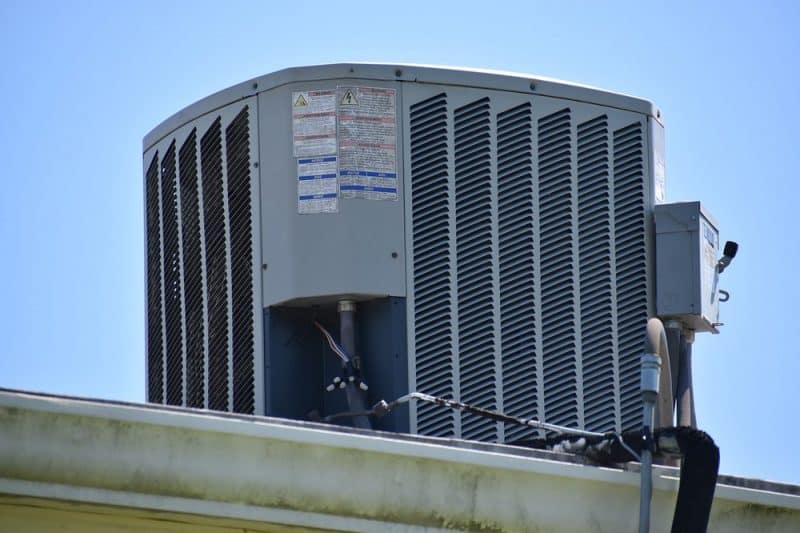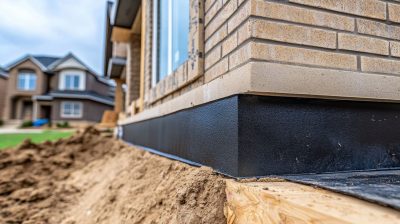
The heating and cooling system significantly impacts your new home’s comfort. With various HVAC system options available in the market, picking the suitable heating and cooling unit can be challenging. Here are four detailed tips to help you choose the best HVAC system for your new home.
1. Check the Ratings
One of the most effective ways to determine the right heating and cooling system for your new home is by checking the HVAC ratings. These ratings provide insights into the system’s efficiency and performance, helping you make an informed decision. Here are some key ratings to consider:
- Seasonal Energy Efficiency Ratio (SEER): The SEER rating measures the efficiency of air conditioners and heat pumps over a typical cooling season. A higher SEER rating indicates a more energy-efficient system, which can lead to lower energy bills and a reduced environmental footprint. For optimal energy efficiency, look for systems with a SEER rating of 14.5 or higher. This ensures that your system will operate efficiently, saving you money in the long run and minimizing its impact on the environment.
- Average Fuel Utilization Efficiency (AFUE): The AFUE rating measures the efficiency of gas and oil-fired furnaces. It indicates how much of the fuel consumed by the furnace is converted into usable heat. For example, a furnace with an AFUE rating of 90% converts 90% of the fuel into heat, while the remaining 10% is lost. When choosing a furnace, look for an AFUE rating between 78% and 98.5% to ensure high efficiency and lower fuel costs.
- Heating Seasonal Performance Factor (HSPF): The HSPF rating measures the heating efficiency of heat pumps. A higher HSPF rating indicates a more efficient system, which can lead to lower heating costs. Aim for a heat pump with an HSPF rating between 8 and 13 to ensure optimal efficiency and cost-effectiveness.
2. Do Not Overlook the Maintenance Requirements
Purchasing an HVAC system for your new home is a significant investment, and regular maintenance is crucial to ensure its longevity and efficiency. Choose a system known for its reliability and ease of maintenance. Consider negotiating with specialists like Lexington HVAC Company for a service plan that includes routine inspections, labor warranties, and repair discounts to keep your unit in top condition and ensure optimal performance.
3. Consider the Size
The size of your HVAC system is critical to its performance and efficiency. An incorrectly sized system can lead to various issues, including:
- Oversized Systems: If your HVAC system is too large for your home, it will cycle on and off frequently, leading to increased wear and tear. This short cycling can also result in uneven heating and cooling, reduced comfort, and higher energy bills. An oversized system may fail to properly dehumidify the air, leading to a damp and uncomfortable indoor environment.
- Undersized Systems: If your system is too small, it will struggle to maintain the desired temperature, running continuously and using more energy. This constant operation can lead to higher energy bills and a shorter lifespan for the system. An undersized system may also fail to adequately heat or cool your home, leading to discomfort.
To ensure you choose the right size, hire a professional HVAC contractor to conduct a load calculation. This calculation considers factors such as your home’s size, insulation, number of windows, and local climate to determine the appropriate capacity for your HVAC system.
4. Set a Budget
Setting a budget is a crucial step in choosing the right HVAC system. Here are some factors to consider:
- Initial Cost vs. Long-Term Savings: While it may be tempting to choose a cheaper system upfront, investing in a higher-quality, more efficient unit can save you money in the long run. Consider the system’s energy efficiency, maintenance costs, and expected lifespan when setting your budget. A more efficient system may have a higher initial cost but can result in significant savings on energy bills over time.
- Energy Efficiency: Systems with higher energy efficiency ratings (SEER, AFUE, HSPF) may have a higher upfront cost but can lead to substantial savings on your energy bills. When setting your budget, factor in the potential long-term savings from reduced energy consumption.
- Quality and Durability: Investing in a high-quality HVAC system can ensure reliable performance and a longer lifespan. Research different brands and models to find a system that offers the best balance of quality and cost. A durable system can reduce the need for frequent repairs and replacements, saving you money over time.
- Consult with a Contractor: Work with your HVAC contractor to develop a realistic budget that considers your home’s heating and cooling needs, energy efficiency goals, and financial constraints. A professional can help you find a system that meets your requirements without exceeding your budget.
Endnote
When building a new home, choosing the right HVAC system is as crucial as selecting the right structure and design for your property. Be sure to check the heating and cooling system’s ratings, size, and maintenance requirements, then set a reasonable budget to make an informed purchasing decision. By following these tips, you can ensure that your new home remains comfortable and energy-efficient for years to come.








